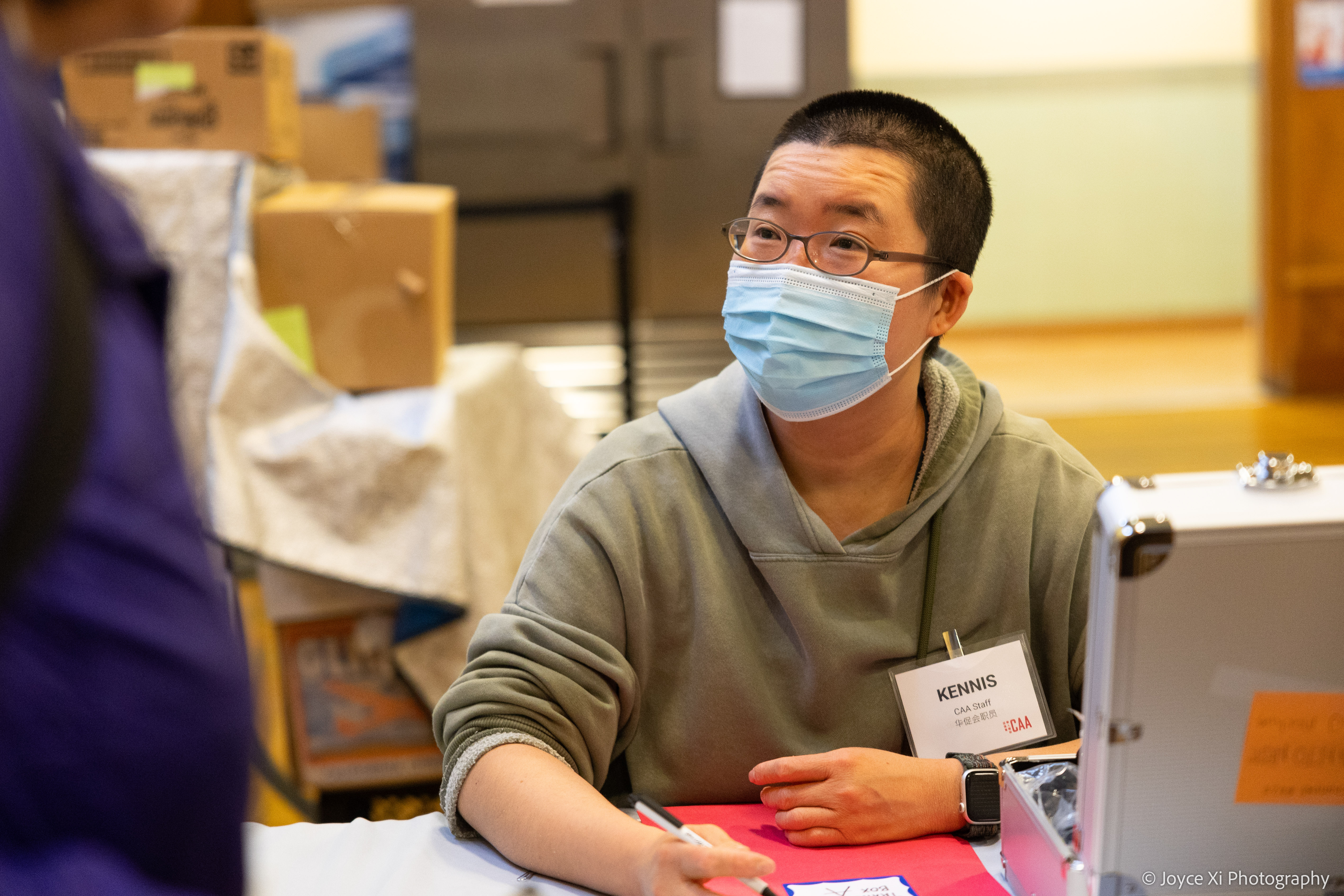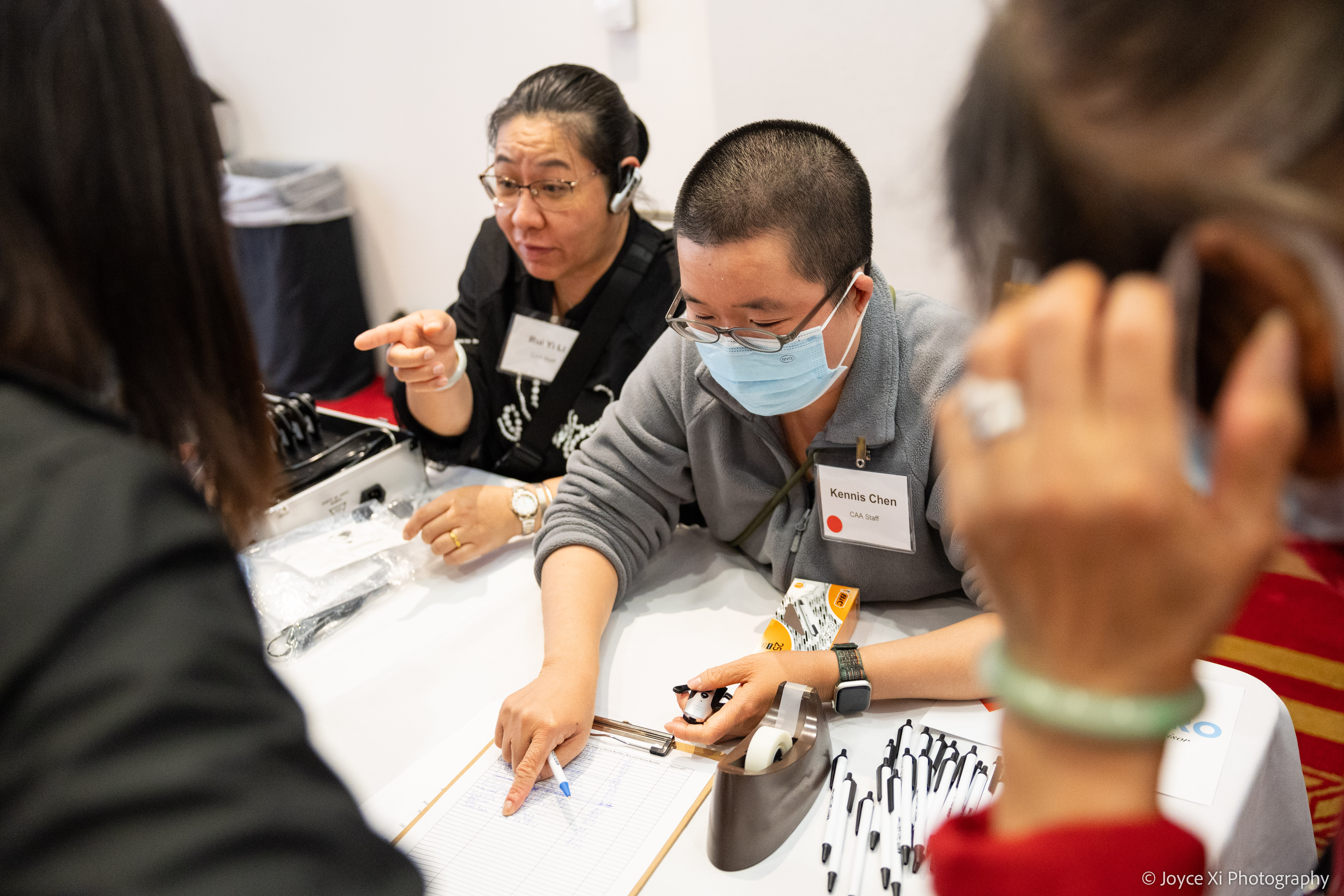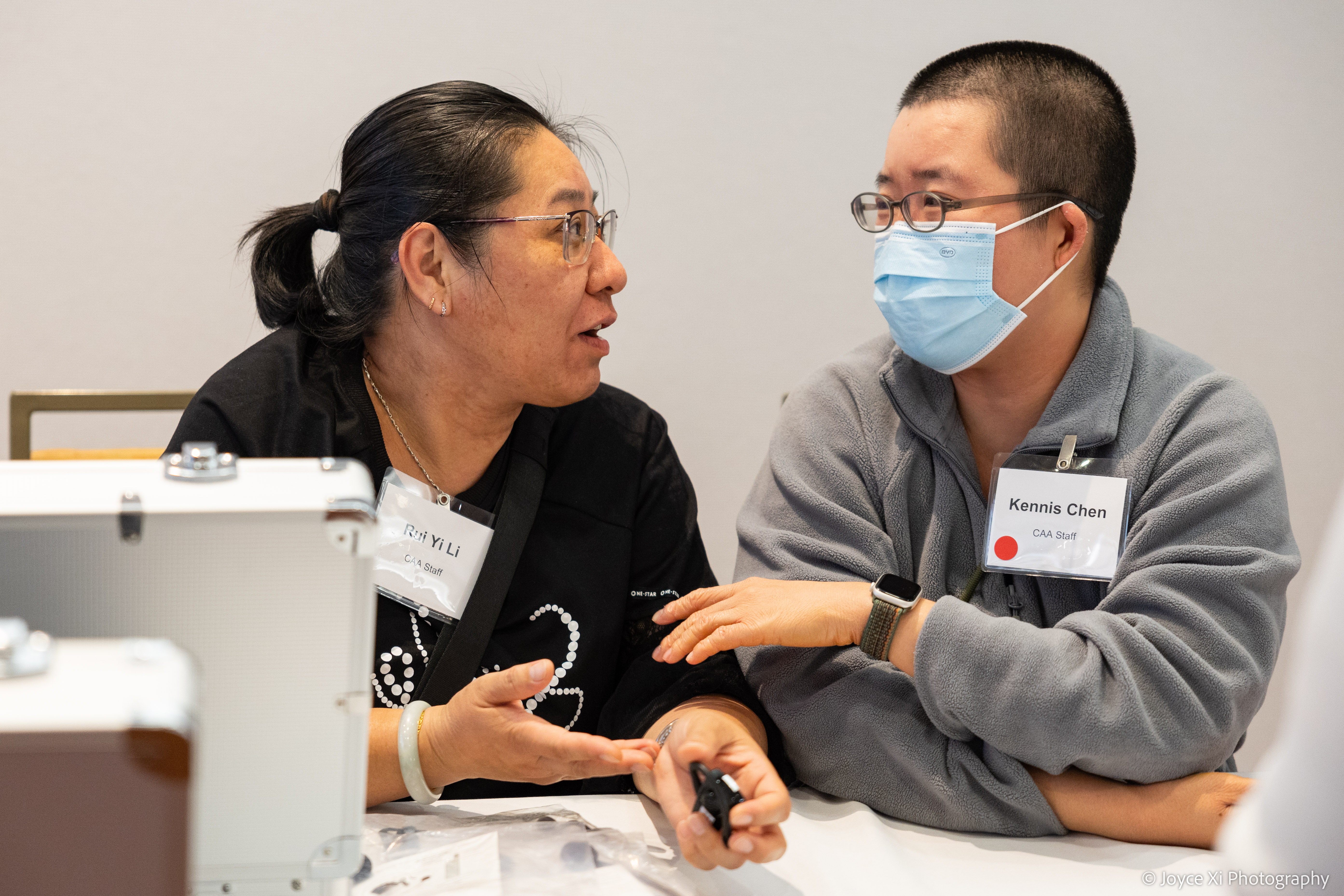
By Kennis, Advocate, Chinese Digital Engagement Program
Like many of us, Kennis Chen checks social media every day. But she does so for her job. As a digital engagement advocate at CAA, Kennis monitors Chinese-language social media spaces to see what people are discussing — and to track disinformation. She counters falsehoods with fact-checks and articles on CAA’s Chinese-language websites PiYaoBa.org and JusticePatch.org. She also shares community resources and accurate information with the Chinese-speaking community through CAA’s WeChat channels.
Originally from Southern China, Kennis came to the United States for her education and worked in art and tech. But neither field felt right for her, and she eventually found her way to CAA.
How did you join CAA?
It was early 2021. I don’t know if you remember Clubhouse. I found a community there. We were just on there talking about Chinese feminist topics. And I met one of the content contributors of CAA there. That’s how I got connected with CAA.
It’s fitting that you found CAA through a digital platform because now you work in digital engagement. In the three years you’ve been doing this work, how has the Chinese-language digital landscape changed?
The disinformation is definitely still concerning, but I think more and more individual people are doing fact-checking work themselves. There are more people who are willing to come out and debunk disinformation. So, for example, on Twitter person A will say something and then person B will come out and say, “This is false.”
Something that’s really sad is that you can only make money if you have more traffic, right? So even some accounts that we’ve collaborated with before, they start to turn towards the disinformation direction because that will give them traffic. Maybe the previous editors or writers left, so they’re understaffed, and they find unqualified people to do their content. And then there’s no editor to fact-check.
“Chinese-speaking audiences want to feel genuinely included, not just as an afterthought.“
Given the election’s outcome, I would be curious to hear your thoughts on how Chinese-language disinformation impacted this election cycle?
Because of censorship and internet restrictions in China, Chinese-speaking communities lack a foundation in political education. This results in an information gap which is then easily filled by extreme right-wing disinformation. Even if you debunk a false narrative, people assume you are biased. It shows how disinformation can damage truth by undermining people’s ability to separate facts from lies while casting doubt on the credibility of the individuals and institutions.
Chinese-speaking audiences want to feel genuinely included, not just as an afterthought. We need to invest in grassroots efforts that empower trusted community members to bring these conversations into daily life. For example, my friends and family trust me more than what they read in the newspaper or on social media, so I actually have the power to shift the narrative within my own circle. Real connection requires ongoing, culturally relevant engagement.
At CAA, we are focused on creating a space where the community can hear both sides of political issues, but grounded in facts. Our goal is to encourage meaningful dialogue that humanizes everyone’s experience. I truly believe people want connection and validation. With limited resources, we’re doing what we can, but we’re always searching for new and creative ways to make a real, lasting impact.
What are some of the culturally specific ways in which disinformation in Chinese has been used to delegitimize social justice movements?
Black Lives Matter is a great example because people deliberately use 黑命贵, which in Chinese sounds like, “Black lives matter more than others.” It literally means, “Black lives are expensive.” There’s no official translation for Black Lives Matter in Chinese, so people use different phrases. And because of the nature of Chinese, you can use very short words. But it changes the whole meaning. It’s very negative. I think it has a deep impact on how people see African Americans, including Kamala Harris. The other day I was listening to a podcast in Chinese that’s quite progressive. But even the host inadvertently referred to Black Lives Matter as 黑命贵. It shows how deep this goes, how widely it spread.
What can people do to protect themselves from disinformation?
For most people I would just say: Do not share content if you cannot verify if it is true. With my friends or my family, when they share something that I find suspicious, I’d probably do fact-checking myself and ask them, ‘Where is the source? Where did you get the information from?” A social media post is not the news.
Also, sometimes you need to be less emotional. Disinformation spreads because you’re so angry about certain things or you’re so sad or so surprised about certain things. That’s how they draw you in. So I think we need to be less emotional. And maybe get back into your real life. Talk to real people, touch the grass, and see the good things about life. A lot of disinformation works by dehumanizing certain groups of people. So for example, migrants, Black people, or LGBTQ people. They’re dehumanizing them, saying, “They’re not like you.” But they’re just like ordinary people, like every one of us.
How do you take care of yourself when you’re steeped in all this negative content on the internet day in and day out?
I definitely was having a hard time in 2022, especially whenever a mass shooting happens, and also when the COVID lockdown in China was really bad. I think the most difficult narrative is when something is portrayed as inhuman. For example, when talking about mass shootings, they say the victims were 抵死 [brought it upon themselves]. Or they say that the shooting is not real. Those inhumane narratives really trouble me.
I talk to a therapist. I also try to separate work and life and try to see the bright side because what I’m monitoring, many of them are far-right narratives. Those people do not represent all of the people online. And also like I mentioned, more people are willing to share, to debunk this information and also share more progressive or more fact-based stuff. This is the bright side that I’m looking forward to.
What do you miss about home?
烟火气 — I’m not sure how to describe it in English, but when I think about home or when I think about life, I prefer it has 烟火气. [烟火气 means something akin to hustle and bustle.] That’s why I love grocery shopping and going to traditional markets. Together we’re buying groceries, we’re doing something. Literally, it means when you cook, there’s smoke, there’s smell. There’s a sense of community. People know each other.
I feel like our outreach specialists at CAA have that. They just know everyone in Chinatown. They’ll walk down the street and bump into someone. I feel like they definitely have a community in Chinatown.
Will you support Kennis’ work fighting disinformation in Chinese-language spaces? Donate to CAA’s Chinese digital engagement work today!





